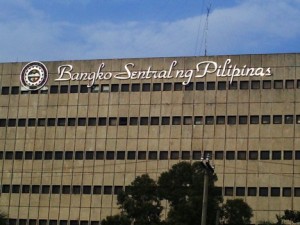Relaxation of rules on directed lending eyed
MANILA, Philippines—Congress may relax or even scrap regulatory requirements for bank lending to farmers and small businesses, which expose these financial institutions to excessive risks, and jeopardizing their primary objective of safeguarding depositors’ money.
Instead of these prescriptive lending rules—which have a poor record of success, locally and abroad—the Bangko Sentral ng Pilipinas (BSP) said the government should address underlying issues such as infrastructure bottlenecks that make certain sectors of the economy unattractive for banks.
Rep. Sonny P. Collantes said the House Committee on Banks and Financial Intermediaries was considering relaxing provisions of Republic Acts’ 10000 or the Agri-Agra law, and 9405 or the Magna Carta for Micro, Small and Medium Enterprises (MSME) that mandate banks to allot portions of their loan portfolios to farmers and small businesses, respectively.
Under the Agri-Agra law, at least 20 percent of a bank’s loans should be set aside for agriculture purposes. The MSME law, meanwhile, says that 8 percent of all banks’ portfolios should be reserved for loans to small businesses.
BSP Deputy Governor Nestor A. Espenilla Jr. said these mandatory lending rules force banks to choose between protecting their balance sheets—and in turn their depositors—and complying with the law.
“They may or may not be ready to lend to these sectors,” Espenilla told reporters.
He said the agri-agra and MSME laws force banks to expose themselves to risky sectors of the economy, which runs counter to international standards of prudential lending standards.
Espenilla said that for many banks, paying fines to the BSP is a more desirable option than weakening their balance sheets by lending to these risky sectors.
He said the government should instead focus on addressing underlying issues that make farmers and small businesses “unbankable.”
“For instance, agriculture is a very seasonal, weather dependent business. There’s a need for ways to mitigate risk. One option is by strengthening crop insurance for farmers,” Espenilla said.
He said improving productivity through investing in the modernization of farming methods should also be considered to make farmers more profitable.
Chamber of Thrift Banks (CTB) president Jose Teodoro Limcaoco said another issue was the ability of these sectors to absorb all the money that the laws say they should have. He said while banks may have the funds to lend, the target sectors might not be deep enough to take the loans. This would drive down the price of loans, which means banks won’t be able to receive returns that match the risks they take.
In developed countries, similar mandatory lending rules are often accompanied by government guarantees, which minimize the risk for banks, Limcaoco said.















